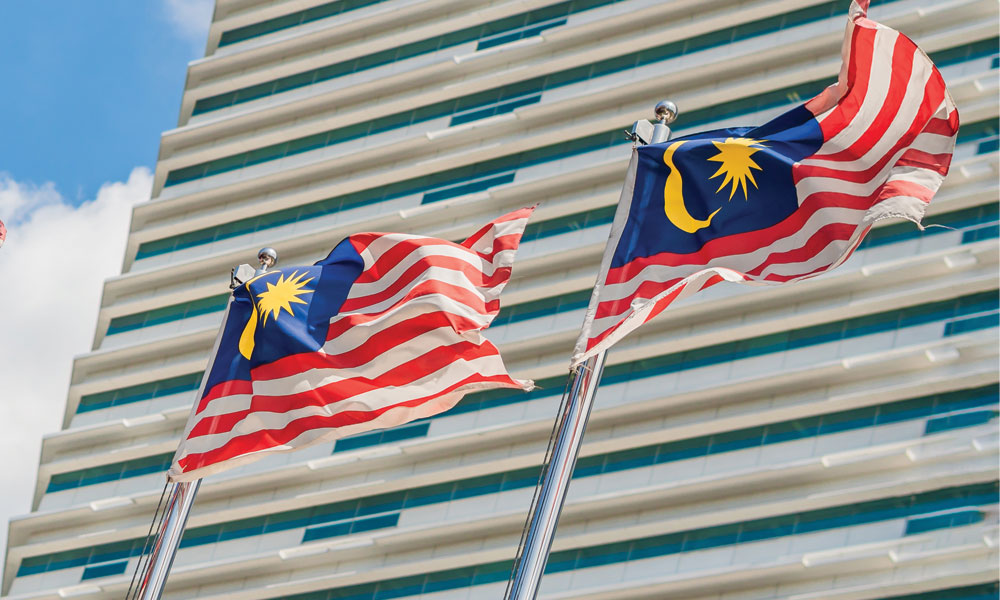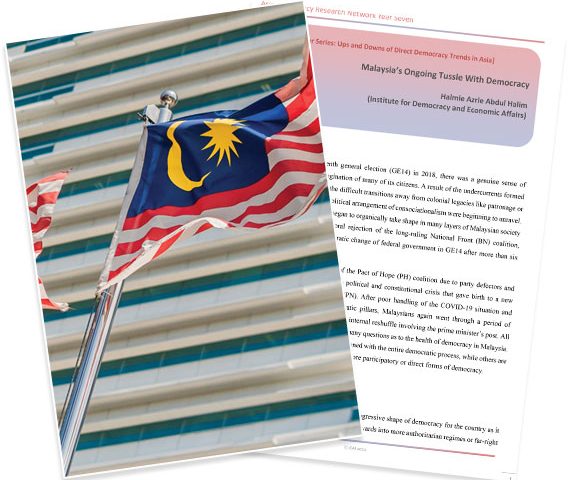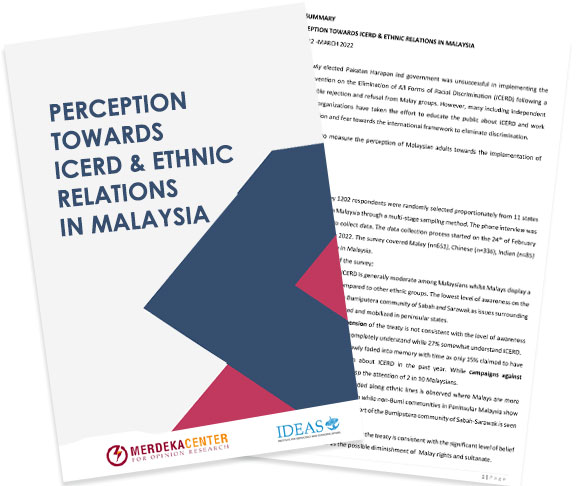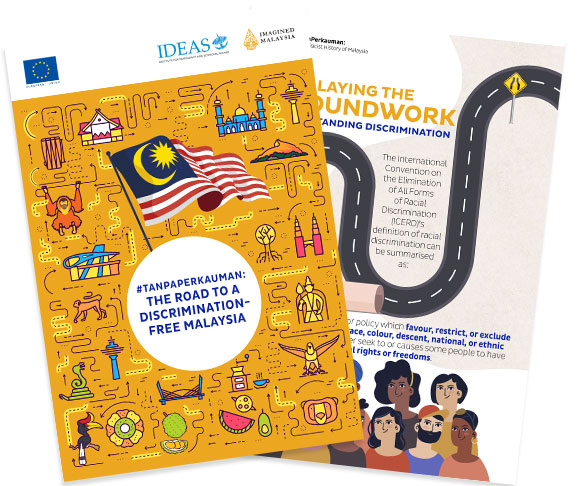
Malaysia’s Ongoing Tussle With Democracy
Halmie Azrie Abdul Halim
Many observers of Malaysia anticipated a more progressive shape of democracy for the country as it bucked the global and regional trend of sliding backwards into more authoritarian regimes or far-right populist rule. Unfortunately, the deposed BN coalition effectively manufactured a narrative to entice its long-time political rival, the Pan-Malaysian Islamic party (PAS), into working together in forming the National Concord (MN) to destabilize the PH government and potentially return the BN coalition to power. This strategy led to the eventual resignation of the seventh prime minister and self-sabotage of the promising “New Malaysia” agenda. Leadership ambiguity ensued for several weeks until the hastily assembled PN coalition stepped in as a substitute amidst the start of the pandemic.
The far less transparent and rather desperate installation of the PN government without the people’s mandate led to clear and urgent demands from the Malaysian public, especially its civil society, to rethink democracy and reform its decaying institutions as posited by Francis Fukuyama in his works. As the eighth prime minister was forced to make way for the current prime minister to avoid being removed in a vote of no confidence in Parliament, numerous concessions were dealt out as part of a Memorandum of Understanding (MoU) between the fragile government and the largest opposition bloc. This further invited public criticism as the deal was discussed and done among the leaders of the respective parties and its supporting members of Parliament (MPs).


